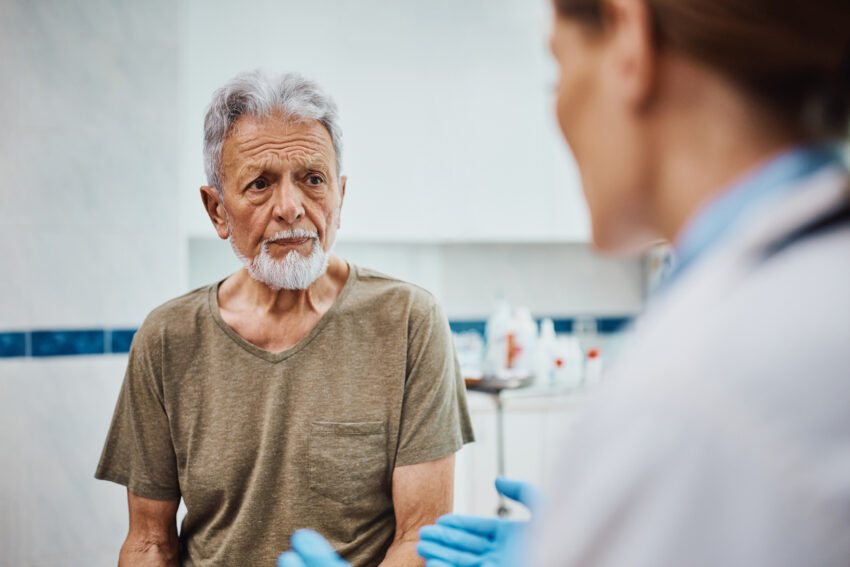
Share On Social!
Cancer patients with unmet needs for support – in areas from finances to emotions – are more likely to experience worse clinical outcomes, according to a new study led by Dr. Frank Penedo of the Sylvester Comprehensive Cancer Center at the University of Miami.
Who are the cancer patients at highest risk for having unmet needs?
Latinos, Blacks, and people who experience anxiety, depression, pain, poor physical function, and low health-related quality-of-life scores.
“Our findings offer strong evidence that unmet supportive care needs are associated with unfavorable clinical outcomes, particularly higher risk for ED visits and hospitalizations,” Dr. Penedo said, according to a news release.
Let’s dive into unmet needs and what they mean for Latino cancer survivors!
Unmet Needs and Cancer
Cancer is a tough opponent.
Survivors may face many challenges, from the side effects of cancer drugs to pain and fatigue, anxiety and depression, transportation issues, and a lack of cancer education. Patients also may exhibit negative lifestyle behaviors, such as poor nutrition and sedentary activity.
Unmet needs are another challenge.
Financial, informational, psychological, and physical are the most common unmet needs.
“These unmet needs can vary across diagnoses. For example, long-term survivors of head and neck cancer (those with diagnoses of at least five years) needed more psychosocial and emotional support while patients who had recently completed treatment reported a greater need for information,” according to Penedo’s team.
Unmet Needs and Cancer in Latinos
Latino cancer survivors have a high risk for unmet needs.
To learn more, Penedo’s team analyzed 5,236 patient records (48% Latino) from various Sylvester Comprehensive Cancer Center sites.
Of these, 940 patients, or 18%, reported one or more unmet supportive care needs.
“Support for coping with cancer and financial concerns were the most reported unmet needs, followed by general cancer education and information,” according to the team.
Almost one quarter of patients with unmet support needs had emergency department visits, compared with 14% for those without unmet needs. The study also reported that for hospitalizations, the differences were 23% and 14%, respectively.
“Addressing these unmet needs is crucial to improve clinical outcomes and particularly in racial and ethnic minority populations where the needs are greatest,” Penedo said.
The complete study and research findings can be found here.
Cancer Disparities and Latinos
Latinos are expected to face a 142% rise in cancer cases in the coming years.
Part of the reason for cancer disparities is that Latinos face health inequities in the social determinants of health, such as unstable housing, transportation challenges, lack of access to green spaces, and issues with access to care and preventive screenings.
 Latinos also face barriers to participation in clinical trials.
Latinos also face barriers to participation in clinical trials.
Clinical trials are studies with volunteers that help researchers learn how to slow, manage, and treat different diseases.
Dr. Amelie Ramirez, who directs the Institute for Health Promotion Research (IHPR) and Salud America! program at UT Health San Antonio, is creating new ways to urge Latinos to volunteer for clinical trials thanks to a grant from Genentech, a member of the Roche Group.
On her Salud America! website, Ramirez is showcasing open clinical trials.
For example, the Avanzando Caminos Clinical Trial is seeking Latino cancer survivors to help unpack the social, cultural, behavioral, mental, biological, and medical influences on post-cancer life. Other open trials cover bladder cancer, breast cancer, genetic screening, and more.
Ramirez is also leading awareness-raising social media events, webinars, and uplifting the stories of Latino clinical trial participants.
Like Alma Lopez, a 15-year breast cancer survivor.
Lopez believes participating in a clinical trial at UT Health San Antonio helped her get better treatment and better long-term health.
“Clinical trials are great for finding new treatments that help people,” Lopez said. “And it helps the scientists. It gives opportunity to better medication for all populations.”
Collaborating to Address Latino Cancer Disparities
To address the Latino cancer burden from all aspects, UT Health San Antonio is hosting the 4th biennial Advancing the Science of Cancer in Latinos conference Feb. 21-23, 2024, at the Marriott Riverwalk in San Antonio, Texas.
Ramirez is co-hosting the conference with the NCI-designated Mays Cancer Center. Dr. Patricia Moreno, a member of Penedo’s research team, is on the conference planning committee.
“Advancing the Science of Cancer in Latinos is a sanctuary where we can share research, experience, and action to translate basic research into clinical best practices, effective community interventions, and professional training programs to eliminate cancer disparities in Latinos,” said Ramirez.
Registration for the conference is open now!
Learn more about the wonderful line-up of guest speakers for the conference and why you should register now.
Examining the Health of Your Community
You can help address some of the underlying social needs behind cancer disparities.
Download a Salud America! Health Equity Report Card!
Explore local data, interactive maps, and comparative gauges that focus on health-related issues such as poverty, health care, education, and more.
Use the data from your county for presentations or research briefs and compare it to other counties across the state and the nation.
Share your results with local city or school leaders and social justice organizations to advocate for change in your community!
By The Numbers
142
Percent
Expected rise in Latino cancer cases in coming years



